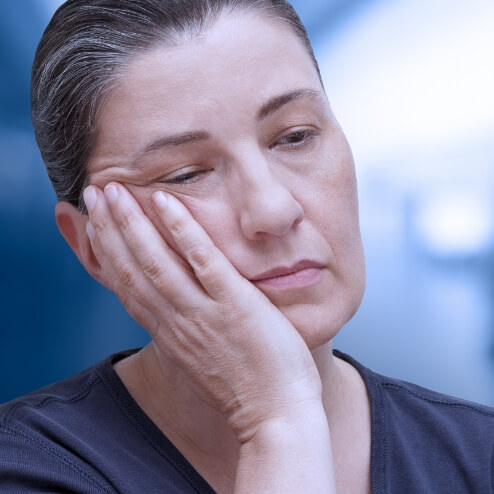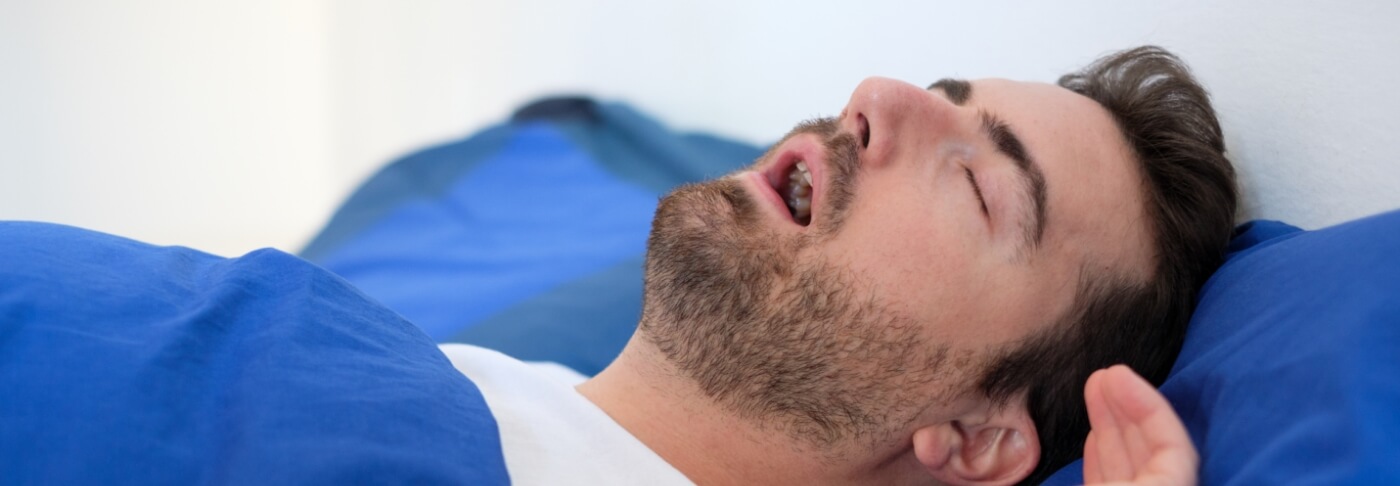Effects of Sleep Apnea – Plano, TX
Disturbing to Your Sleep, Destructive to Your Health
Sleep apnea is a disorder that causes a person’s breathing to be interrupted during sleep. There are two types of sleep apnea. The first and most common form is obstructive sleep apnea, which happens when the airway becomes blocked, leading to a sound that is all too familiar to many bed partners: snoring. The other type of sleep apnea is central sleep apnea. This is a neurological condition in which the brain fails to signal your muscles to breathe. In either case, the effects are not only disruptive to your sleep, but they can also have serious health consequences. If you find that you are exhibiting symptoms associated with sleep apnea, give us a call.
Why Choose Sleep Rehab for Sleep Apnea Treatment?
- Comfortable Alternatives to CPAP Therapy
- Knowledgeable Dentist and Team
- Convenient CareCredit Financing Available
The Short-Term Health Effects of Sleep Apnea

There are short-term and long-term health consequences to sleep apnea. With proper treatment to restore a good night’s sleep, the short-term effects may be reduced or even eliminated. Some short-term consequences include:
- Impaired cognitive ability, including memory function and thought processing.
- Reduced motor coordination, which can lead to occupational injuries.
- Increased daytime sleepiness, leading to drowsy driving that the National Highway Traffic Safety Administration estimates is the cause of some 100,000 auto accidents.
The Long-Term Health Effects of Sleep Apnea

The long-term health effects, on the other hand, are associated with serious medical conditions. For example, sleep apnea is a primary risk factor for high blood pressure. And because sleep apnea is so often undiagnosed, some 40 percent of those people may also have undiagnosed and untreated high blood pressure (also known as hypertension). This high blood pressure can in turn lead to heart disease, heart attacks, and strokes.
Sleep apnea has also been associated with depression. Some 20 percent of people who have sleep apnea also have symptoms of depression, and existing depression can be made worse by sleep apnea. Studies do show that treating sleep apnea may ease depression. Other medical conditions associated with sleep apnea are obesity, attention deficit disorder, low newborn birth weight, and impeded childhood development.

